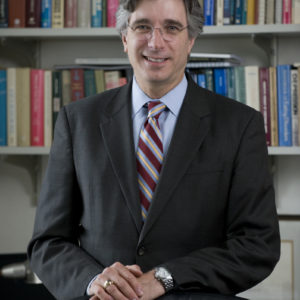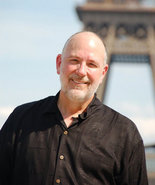Memory Processes, Therapy, and You: Transdiagnostic Perspectives on Maximizing Therapeutic Learning (With CE)
$40.00
Presenter: Michael W. Otto, Ph.D. is Professor in the Department of Psychological and Brain Sciences and Senior Fellow in the Institute for Health System Innovation and Policy Director at Boston University. He has had a major career focus on developing and validating new psychosocial treatments, with a focus on treatment refractory populations including those with bipolar, anxiety, and substance use disorders. His work includes a translational research agenda investigating brain-behavior relationships in therapeutic learning, including the use of novel strategies (e.g., d-cycloserine, yohimbine) to improve the consolidation of therapeutic learning. Dr. Otto’s focus on hard-to-treat conditions and principles underlying behavior-change failures led him to an additional focus on health-behavior promotion, including investigations of addictive behaviors, medication adherence, sleep, and exercise. Across these behaviors, he has been concerned with cognitive, attention, and affective factors that derail adaptive behaviors. Dr. Otto has published over 400 articles and over 20 books spanning his research interests, and he was identified as a “top producer” in the clinical empirical literature as well as an ISI Highly Cited Researcher. His leadership positions include serving as Past President of the Association of Behavioral and Cognitive Therapies, and immediate Past President of Division 12 of the American Psychological Association.
Overview: The way in which new learning is integrated into existing memory structures has rich clinical relevance because, regardless of theoretical orientation, psychotherapy is concerned with modification of the influence of an individual’s personal history on his or her current functioning. In short, frequently a goal of therapy is to modify the degree to which individuals are emotionally or behaviorally shackled by their own learning histories. Accordingly, this talk provides a clinically-rich perspective on the nature of memory adaptation and accommodation in relation to therapeutic interventions, with the goal of enhancing clinical attention to helping patients better retain and use the valuable moments of change in psychotherapy. Elements of this presentation will include an update on pharmacologic and behavioral strategies for enhancing extinction learning from exposure, as well as focused reminders to task other memory enhancing strategies—e.g., cues, exercise, sleep—for enhancing learning in therapy.
Learning Objectives:
- Know concepts associated with memory reconsolidation.
- Know the strength and reliability of post-reconsolidation extinction effects in human de novo fear conditioning studies.
- Be aware of common strategies for enhancing memory for session material, including the influence of sleep and exercise.
- Be able to select and apply strategies to enhance therapeutic learning in psychotherapy.
Description
Presenter: Michael W. Otto, Ph.D. is Professor in the Department of Psychological and Brain Sciences and Senior Fellow in the Institute for Health System Innovation and Policy Director at Boston University. He has had a major career focus on developing and validating new psychosocial treatments, with a focus on treatment refractory populations including those with bipolar, anxiety, and substance use disorders. His work includes a translational research agenda investigating brain-behavior relationships in therapeutic learning, including the use of novel strategies (e.g., d-cycloserine, yohimbine) to improve the consolidation of therapeutic learning. Dr. Otto’s focus on hard-to-treat conditions and principles underlying behavior-change failures led him to an additional focus on health-behavior promotion, including investigations of addictive behaviors, medication adherence, sleep, and exercise. Across these behaviors, he has been concerned with cognitive, attention, and affective factors that derail adaptive behaviors. Dr. Otto has published over 400 articles and over 20 books spanning his research interests, and he was identified as a “top producer” in the clinical empirical literature as well as an ISI Highly Cited Researcher. His leadership positions include serving as Past President of the Association of Behavioral and Cognitive Therapies, and immediate Past President of Division 12 of the American Psychological Association.
Overview: The way in which new learning is integrated into existing memory structures has rich clinical relevance because, regardless of theoretical orientation, psychotherapy is concerned with modification of the influence of an individual’s personal history on his or her current functioning. In short, frequently a goal of therapy is to modify the degree to which individuals are emotionally or behaviorally shackled by their own learning histories. Accordingly, this talk provides a clinically-rich perspective on the nature of memory adaptation and accommodation in relation to therapeutic interventions, with the goal of enhancing clinical attention to helping patients better retain and use the valuable moments of change in psychotherapy. Elements of this presentation will include an update on pharmacologic and behavioral strategies for enhancing extinction learning from exposure, as well as focused reminders to task other memory enhancing strategies—e.g., cues, exercise, sleep—for enhancing learning in therapy.
Learning Objectives:
- Know concepts associated with memory reconsolidation.
- Know the strength and reliability of post-reconsolidation extinction effects in human de novo fear conditioning studies.
- Be aware of common strategies for enhancing memory for session material, including the influence of sleep and exercise.
- Be able to select and apply strategies to enhance therapeutic learning in psychotherapy.





Reviews
There are no reviews yet.